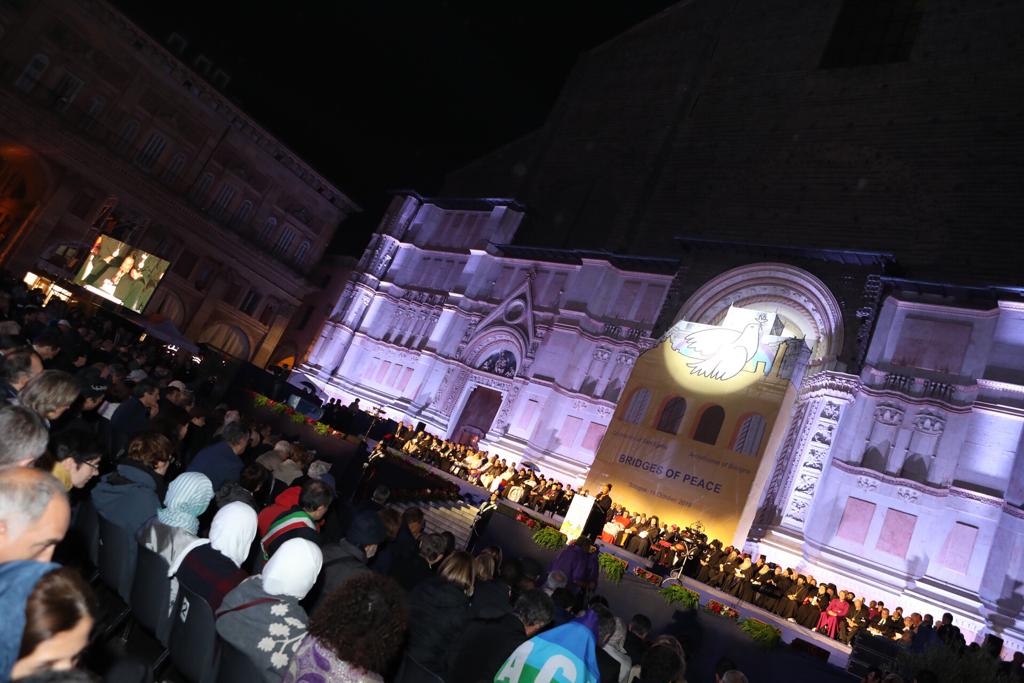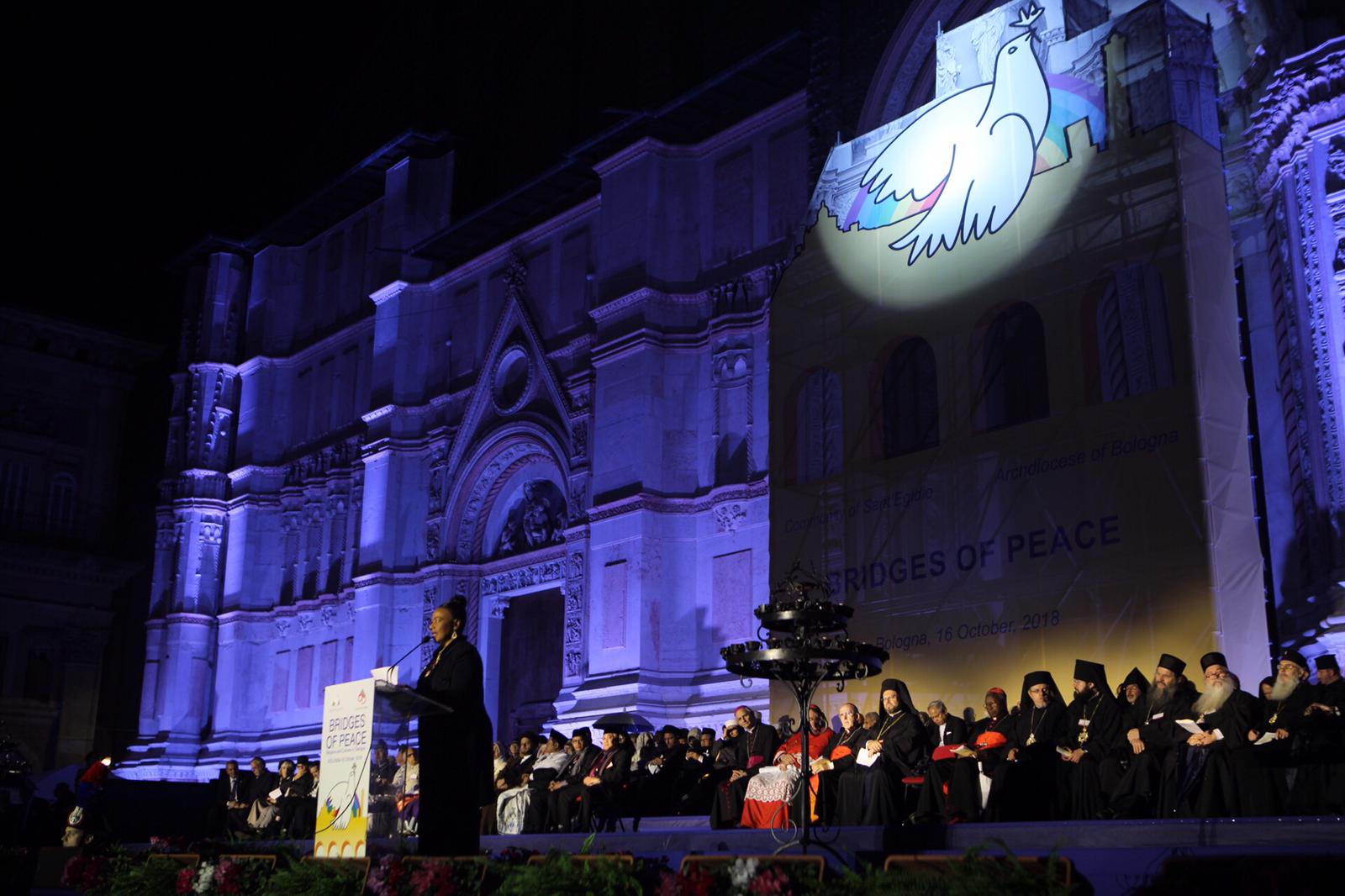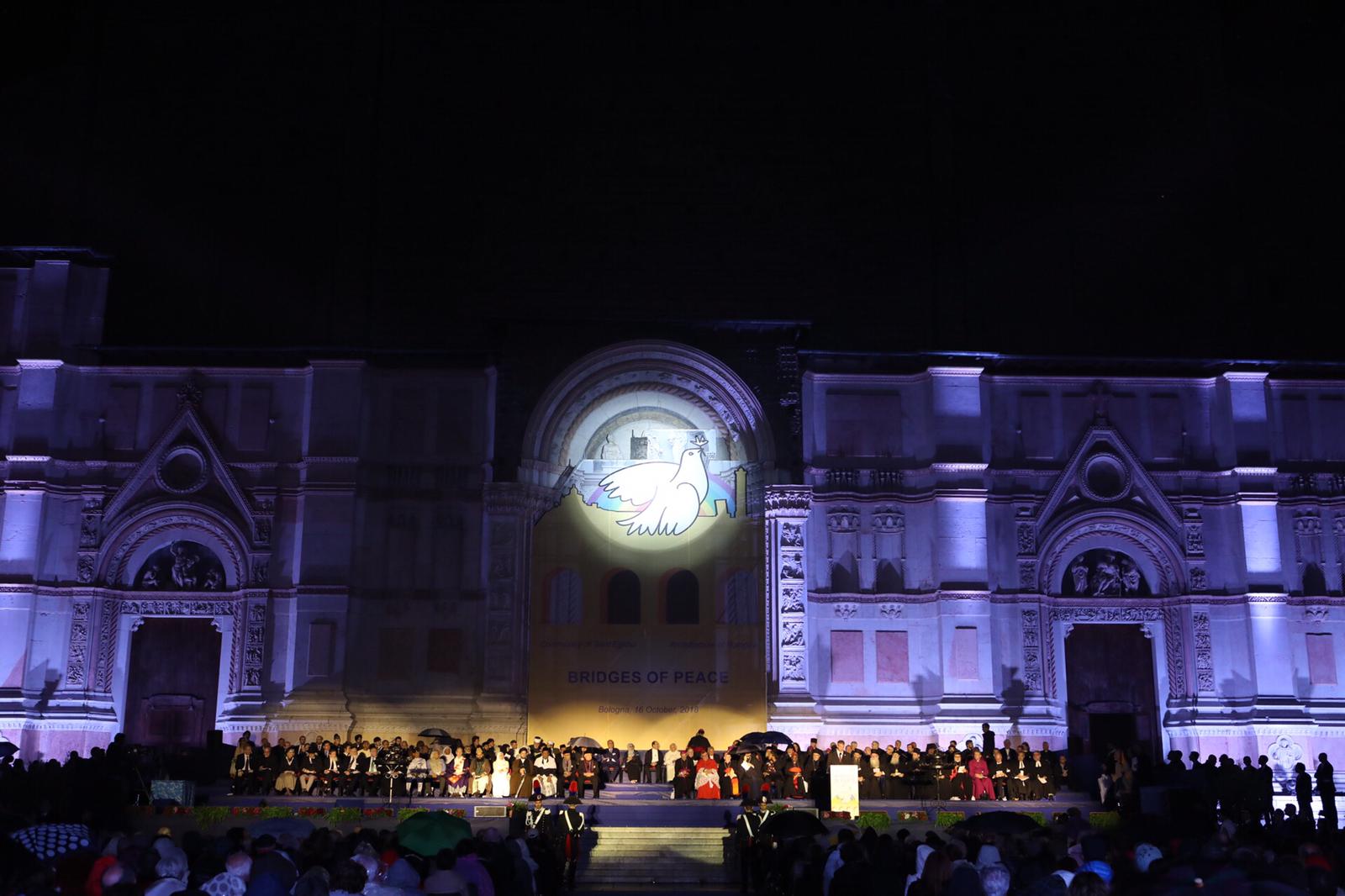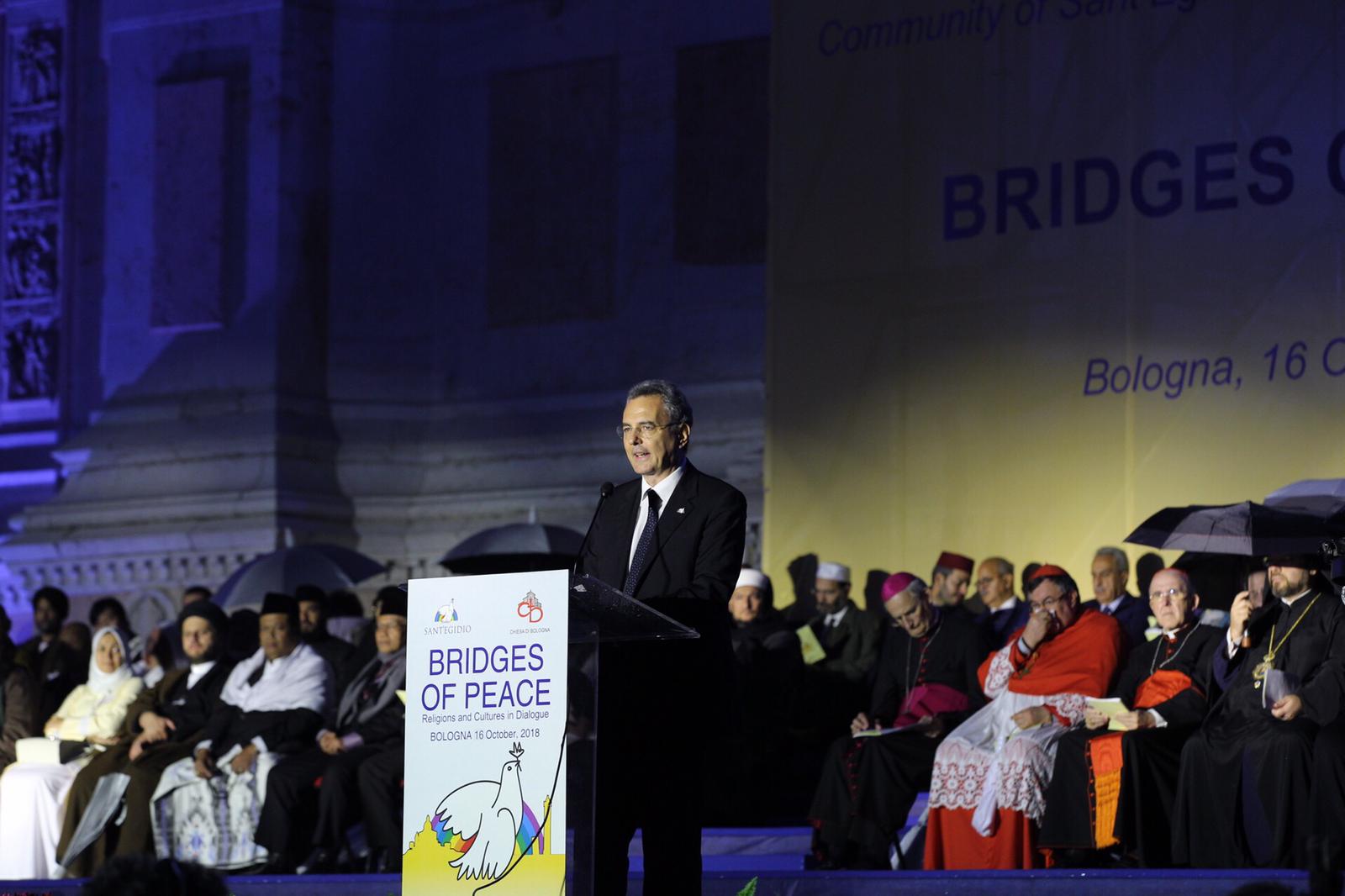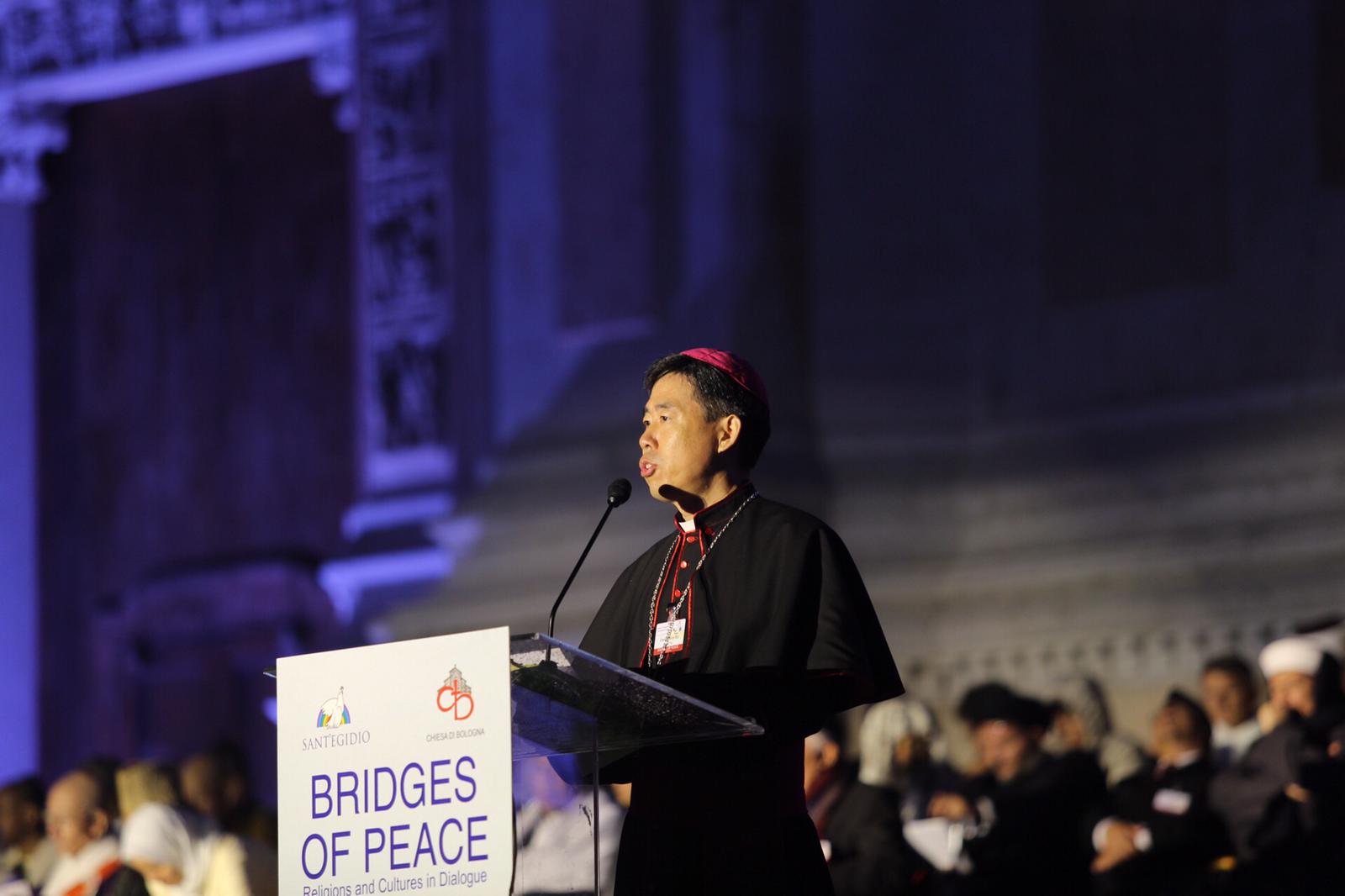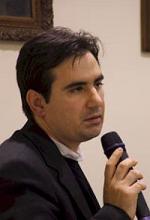
The sicilian bishops published, last May 9, a pastoral letter that recalls and reiterates the invitation that twenty-five years ago, in the Valley of the Temples, in Agrigento, John Paul II addressed to the mafia of that land: «Turn to God!». In the same letter, the sicilian bishops recall the story of Blessed Pino Puglisi, parish priest killed by the mafia in Brancaccio, a popular district of Palermo, on September 15, 1993, again in this case twenty-five years ago: an important anniversary, which Pope Francis celebrated in Palermo exactly a month ago.
Don Puglisi, in his catechesis to the youth of his parish, even before the apostolic visit of Pope Wojtyła, said that in Sicily the time has come to «roll up our sleeves», to pass «from words to deeds», from sermons to action , to put in place a «counter-proposal» with respect to the «culture of illegality» promoted by the mafia. It’s time to inaugurate a «lifestyle» made at the same time of civil aspirations and evangelical inspirations, of «human dignity» and of «christian love». It’s time to start renewed and converted behaviors, which were an unequivocal sign of the desire to redeem from the slavery of evil and mafia.
The sicilian bishops, in their pastoral letter, underline precisely this negative correspondence that don Puglisi caught between evil and mafia: the mafia, in a land like Sicily and as the South of Italy (but also like the rest of our country and like so many other parts of the world), it’s something bad. Evil also consists in it, even in the mafia. One of the faces of evil, a particularly subtle and violent expression, even deadly, is – precisely – the mafia.
In this perspective, the sicilian bishops, in their pastoral letter of a few months ago, address the men and women of the mafia to repeat also the invitation addressed by Francis «to those who, like the mafia, live in evil and in sin, making serious crimes and violating the righteous human laws as well as the divine commandments: “Open your heart to the Lord”», «change your life», as the Pope repeated last month in Palermo.
In this regard, always the sicilian bishops add: «In this last appeal echoes what already Blessed Pino Puglisi said in a homily of August 20, 1993, in the parish church of San Gaetano, in Palermo: he, immediately turning to the Brancaccio mafia and ideally to all the mafia, remembered that they too are baptized and, therefore, “sons of the church”: “I address the protagonists of the intimidation that have targeted us. Let’s talk about it, let us explain, I would like to know you and know the reasons that push you to hinder those who try to educate your children to mutual respect, to the values of culture and civil coexistence”».
These words describe the christian resistance that don Puglisi opposed to the excessive power of the mafia. An evangelically inspired resistance, therefore non-violent, which tried to overcome evil by using the weapons of good. For him, the weapons of good were dialogue, educational commitment and concrete testimony.
First of all, dialogue: to those who insulted him and those who threatened him, to those who sent him signs of death, who filled him with blows in the dark alleys of Brancaccio or slapped him in some hidden corner of the sacristy where he had his little office, don Puglisi reacted by not throwing punches, but holding out his open hand, in the hope of finally shaking the hands of his enemies. Dialogue, that is, the effort to explain one’s own reasons, to argue one’s own point of view, to make oneself known to others and to know the expectations and demands of others, was for him the most effective and coherent way of “turning the other cheek”. In fact, what Jesus says to his disciples, according to the Gospel of Matthew, does not mean being submissive, shy, fearful. Rather, it means being brave even if humble, strong even if mild, determined even if patient. This is the way to evangelically turn the other cheek, this is the way to resist evil in a christian manner. And don Puglisi understood this well, following the suggestion we read in the first letter of Peter: «Who is going to harm you if you are eager to do good? But even if you should suffer for what is right, you are blessed. Do not fear their threats; do not be frightened, […] always be prepared to give an answer to everyone who asks you to give the reason for the hope that you have. But do this with gentleness and respect […]. It is better – if it is God’s will – to suffer for doing good than for doing evil» (1Pt 3,13-17). Dialogue, understood and practiced in this way, is a difficult undertaking, which risks degenerating into its opposite: in the disagreement. Because there is the difficulty of the different languages involved, that we need to know how to translate, learn and understand (the same word “dialogos”, in Greek, means something positive, two words that meet and cross each other, but in its Latin literal translation, “diverbium-disagreement”, dialogue runs the risk of meaning the opposite, that is, two contradictory words). This is why dialogue is already a form of resistance. And don Puglisi thus resisted the mafia, trying to dialogue with it.
In the second place, the resistance of don Puglisi consisted in the pedagogical commitment. He wanted to educate the children of his neighborhood to a new vision of the world, a new sense of life: mutual respect – he said –, to the values of culture and civil coexistence. In fact, he was killed by the mafia because he was turning his parish into the “village fountain” (I borrow this expression from John XXIII), aggregating in the community center he founded people of that neighborhood – especially children and young people – to promote a new community identity. The community, which he wanted to be born and grow, was civil and ecclesial together, in any case an alternative to the mafia clan. For him, it was a question of rethinking pastoral practice and parish life in a missionary perspective, of putting the best ecclesial energies in line with the best social resources, of combining faith and justice. In this sense, his pedagogy was “performative”, capable of translating into action and not solving in small talk: in short, more than a theoretical lesson, a credible witness and a network of relationships, an alliance between men and women of good will, between adults and adolescents, between people in need of help and people willing to offer relief: the “protagonism of hug” between those who help and those who are helped, as Pope Francis would say, as when he spoke to the volunteers of Sant’Egidio, in Rome, a few years ago. When, in July 1992, in Sicily, the italian government put in place the so-called “Vespri Siciliani Operation”, sending the army to the streets of the Island to ensure public order against the underworld, a journalist interviewed the writer Gesualdo Bufalino, asking him what according to him was still to be done to fight the mafia: the writer, who had been a primary school teacher, as his friend Leonardo Sciascia, replied that it needed an «army of primary teachers». Not the military army, but the school army, not repression but prevention. Don Puglisi understood this in turn, dedicating himself to the education of his boys and thus starting another resistance – or a resistance-another – to the mafia.
Finally, the resistance to evil done by don Puglisi consisted of total, sincere and loyal immersion within history and within the world. Or, more precisely, in the immersion into the “reverse” of history, into the “reverse” of the world. That is, in the history of the weakest and the poorest, the outcast and the anonymous, those that the authorities did not take into account, those that the newspapers and television did not speak about. The “reverse” of history and the world is the damned place, the extreme impenetrable periphery to the so-called civil progress, the border that the so-called “decent people” prefer not to cross, the “desert of the Tartars” from which even the State is held stay away, as it still happens today in neighborhoods like the Zen of Palermo, or as Scampia in Naples, or as the Tuscolano and Ostia in Rome. The “reverse” of the world is the place of God himself, who came to Christ Jesus on our streets, in our suburbs, in real contact with our people. Don Puglisi understood this too and therefore lived his testimony, his martyría, in the Brancaccio district of Palermo, resisting evil not from outside, from far away, “from the balcony” as Pope Francis would once again say, but from the inside: not just with words, but with facts; not planning sociological research and pastoral plans, but concretely accompanying his people, working daily among them and for them, clearly distinguishing between good and bad, but without discriminating between the good and the bad. «I have done this, so that you may do the same»: this is what Jesus says to his disciples, after having washed their feet, during the last supper. Don Puglisi remembered it certainly, knowing well that washing the feet, putting oneself to serve, it can appear as an unsuccessful undertaking, as a useless effort (Jesus himself said it to his friends: consider yourselves useless servants). This is why the watchword of his resistance to the evil mafia resonated with a humble but also hopeful tone: «If everyone does something, then you can do a lot».
It seems to me that this is the watchword of the christian resistance that many others have lived in the land of the mafia, from the judge Rosario Livatino, martyr for justice in Sicily, to don Peppe Diana, priest of Casal di Principe near Naples, coming to the young William Quijano Zetino, member of the Community of Sant’Egidio rooted in El Salvador and operator of the School of Peace in the suburbs of Apopa, who gave his christian witness until he was killed by gunshots – in 2009 – by local maras: like don Puglisi, to whom he fraternized in martyrdom, in fidelity to the Gospel and in resistance to evil.
